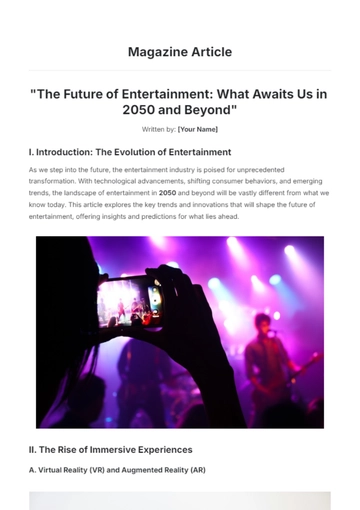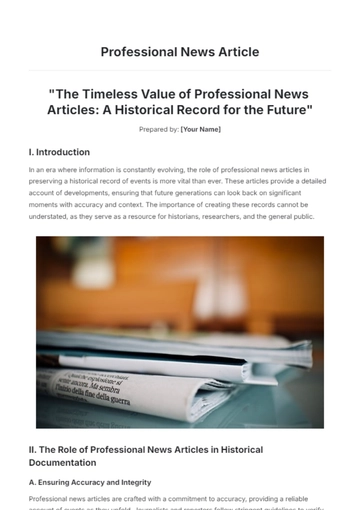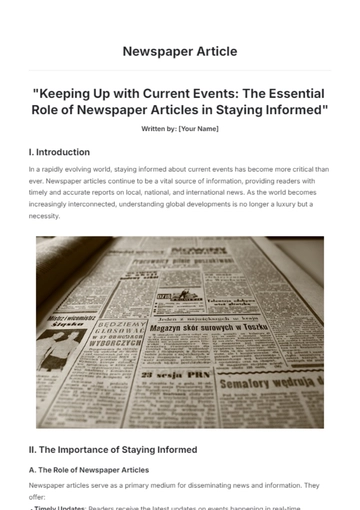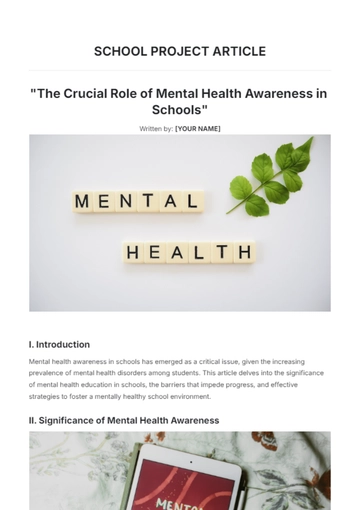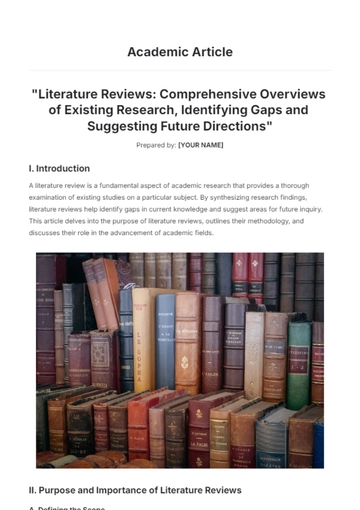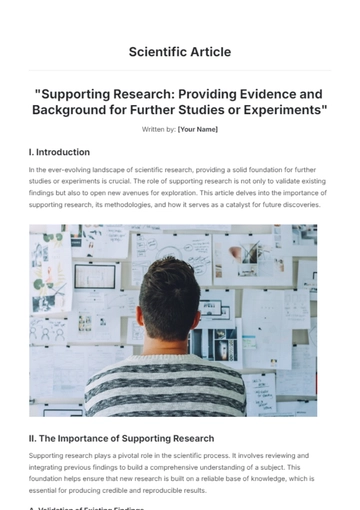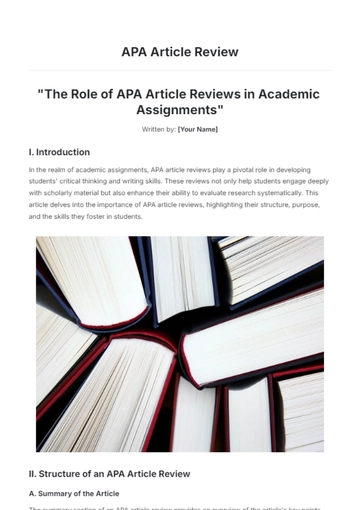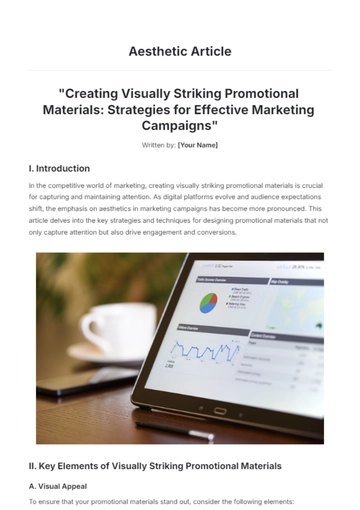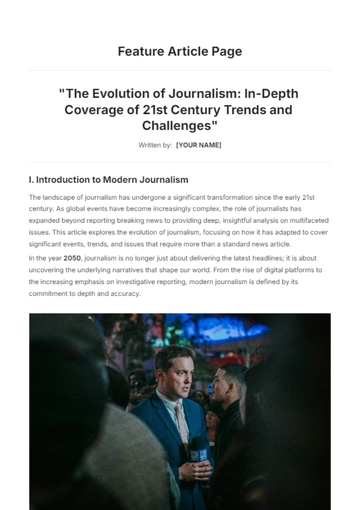Free Perspective Journal Article

"The Future of Artificial Intelligence in Healthcare"
Written By: [Your Name]
Publication Date: [Date]
Abstract
This article explores the transformative potential of Artificial Intelligence (AI) in the healthcare sector. By analyzing current applications, theoretical advancements, and future implications, it offers a critical perspective on how AI could reshape patient care, medical research, and healthcare delivery. The discussion is framed within the context of existing challenges and opportunities, aiming to provide a comprehensive view of AI’s prospective role in the industry.
Introduction
Artificial Intelligence (AI) has rapidly evolved over the past decade, demonstrating its capacity to influence a wide range of sectors, including healthcare. From diagnostic tools to personalized treatment plans, AI technologies promise to revolutionize how healthcare services are delivered. This article examines the current state of AI in healthcare, critiques existing implementations, and discusses prospects, challenges, and opportunities.
Theoretical Framework
AI in healthcare encompasses various applications, including machine learning algorithms for diagnostics, natural language processing for medical records, and robotics for surgical procedures. Theoretical advancements in these areas suggest that AI could significantly enhance healthcare outcomes through improved accuracy, efficiency, and personalization.
Current Applications
Diagnostics: AI algorithms, such as those used in image recognition, have shown promise in diagnosing diseases from medical imaging with high accuracy. For example, AI systems are now being used to detect early signs of cancer in radiological scans.
Treatment Personalization: AI-driven tools can analyze patient data to recommend personalized treatment plans. This application has been particularly impactful in oncology, where AI helps tailor therapies based on individual genetic profiles.
Operational Efficiency: AI applications in managing hospital operations, such as predictive analytics for patient admission and resource allocation, aim to streamline healthcare delivery and reduce costs.
Critique of Existing Work
Despite the promising advancements, several challenges remain in the integration of AI into healthcare. These challenges include data privacy concerns, algorithmic biases, and the need for substantial validation before widespread adoption. Moreover, the ethical implications of AI in decision-making processes warrant further scrutiny.
Data Privacy and Security
The collection and use of patient data by AI systems raise significant privacy and security issues. Ensuring that AI applications comply with data protection regulations and maintain patient confidentiality is crucial.
Algorithmic Bias
Biases in AI algorithms can lead to disparities in healthcare outcomes, particularly if the training data is not representative of diverse patient populations. Addressing these biases is essential to ensure equitable healthcare delivery.
Validation and Regulation
The effectiveness of AI tools must be rigorously validated through clinical trials and regulatory approvals. This process ensures that AI systems are safe and effective for use in real-world healthcare settings.
Future Prospects
Looking ahead, AI has the potential to revolutionize healthcare in several ways. Emerging technologies, such as AI-powered drug discovery and advanced telemedicine platforms, promise to enhance the reach and efficacy of healthcare services.
AI-Powered Drug Discovery
AI technologies are accelerating the drug discovery process by analyzing vast datasets to identify potential therapeutic targets and optimize drug formulations. This could significantly shorten the time required to bring new treatments to market.
Advanced Telemedicine
The integration of AI with telemedicine platforms could enhance remote patient monitoring, enabling more personalized and proactive care. AI-driven analytics can provide real-time insights into patient health and facilitate timely interventions.
Conclusion
Artificial Intelligence holds significant promise for transforming healthcare by improving diagnostic accuracy, personalizing treatments, and enhancing operational efficiency. However, addressing the challenges of data privacy, algorithmic bias, and rigorous validation is crucial for the successful integration of AI into healthcare systems. As technology continues to evolve, ongoing research and thoughtful consideration will be necessary to fully realize AI’s potential in improving patient care and advancing medical research.
References
Smith, J. (2053). Advances in AI for Healthcare Diagnostics. Journal of Medical Technology, 12(3), 45-67.
Lee, R., & Patel, M. (2054). Ethical Considerations in AI-Driven Healthcare. Healthcare Ethics Review, 19(2), 112-130.
- 100% Customizable, free editor
- Access 1 Million+ Templates, photo’s & graphics
- Download or share as a template
- Click and replace photos, graphics, text, backgrounds
- Resize, crop, AI write & more
- Access advanced editor
The Perspective Journal Article Template from Template.net offers a fully editable and customizable format for presenting unique viewpoints and opinions. Tailored for clarity and professionalism, this template allows you to easily adjust the layout to suit your specific journal requirements. Ideal for academics and researchers, it streamlines the writing process, helping you craft a well-structured and polished perspective article that effectively communicates your insights and ideas.









